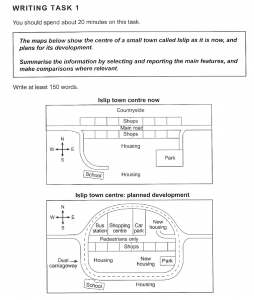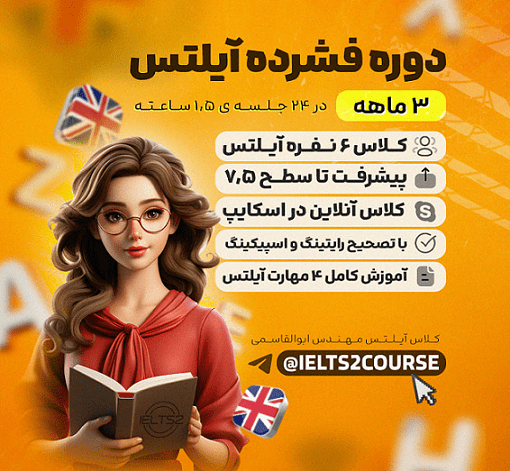نمونه سوالات اسپیکینگ آیلتس درباره روزنامه ها (پارت 1 2 3)
IELTS Speaking Questions with Band 9 Answers about Newspapers
در این بخش بیش از 20 نمونه سوال اسپیکینگ آیلتس نمره 9 از آخرین سوالات گزارش شده از سنترهای ایرانی و خارجی برگزار کننده آیلتس مربوط به پارت 1، 2 و 3 درباره موضوع “‘روزنامه ها” را برای شما فهرست کرده ایم. در ادامه همچنین نکات گرامری، لغات و دلایل دریافت نمره 9 را توضیح داده ایم. 1000 نمونه سوالات اسپیکینگ آیلتس با جواب PDF پارت 1 2 3 پیشنهاد بعدی ما به شما عزیزان است.
نمونه سوالات اسپیکینگ آیلتس درباره موضوع روزنامه ها (پارت 1)
IELTS Speaking Part 1: 10 Questions About Newspapers with Band 9 Model Answers
1. Do you often read newspapers?
Yes, I regularly read newspapers, particularly online editions. They provide reliable and detailed coverage of current events. I usually read The Guardian or The New York Times to stay informed about global issues and enjoy their investigative articles.
2. Do you prefer reading printed newspapers or online ones?
I prefer online newspapers because they are more convenient and environmentally friendly. I can access breaking news instantly, and the interactive features, like videos and hyperlinks, make the reading experience engaging and dynamic.
3. What type of news interests you most?
I am particularly interested in international politics and science-related news. These topics help me understand global developments and the latest innovations, which I find intellectually stimulating and relevant to my life.
4. Do you think young people read newspapers?
Not as much as older generations. Young people prefer getting news through social media or apps. However, newspapers are still valuable for in-depth reporting, which many younger readers appreciate when seeking credible information.
5. How often do you read the news?
I read the news daily, usually in the morning. It’s a habit that keeps me updated on important global events and provides insights into diverse topics, from politics to technology.
6. What are the advantages of reading newspapers?
Newspapers offer well-researched and comprehensive news. Unlike social media, they focus on factual accuracy and detailed analysis, making them a trusted source of information for serious readers.
7. Do you think newspapers will disappear in the future?
Print newspapers may decline, but digital newspapers will remain. Their ability to adapt to modern technology ensures their relevance, particularly through mobile apps and interactive content.
8. Do you think newspapers are more reliable than social media?
Yes, newspapers are generally more reliable due to professional editorial standards. Social media often lacks proper fact-checking, leading to misinformation, while newspapers prioritize accuracy and accountability.
9. What role do newspapers play in your country?
In my country, newspapers are a primary source of credible news. They shape public opinion, highlight societal issues, and hold authorities accountable through investigative journalism.
10. Are newspapers important for improving language skills?
Absolutely. Reading newspapers enhances vocabulary, comprehension, and critical thinking. The diverse topics and sophisticated writing styles provide excellent resources for language learners.
نمونه سوالات اسپیکینگ آیلتس درباره موضوع روزنامه ها (پارت 2)
IELTS Speaking Part 2: Question and Band 9 Model Answer
Describe a newspaper you enjoy reading.
You should say:
what it is called
how often you read it
what kind of news it covers
and explain why you enjoy reading it.
Answer:
One newspaper I enjoy reading is The Guardian. It’s a British daily that offers both print and online editions. I usually read it online every morning while having breakfast. It has a well-organized layout, making it easy to navigate through different sections.
What I appreciate most about The Guardian is its comprehensive coverage of both local and international news. It includes sections on politics, science, arts, and lifestyle, ensuring there’s something for everyone. Additionally, its investigative journalism is exceptional, often uncovering stories that spark important public debates. The opinion pieces are particularly engaging, as they provide well-rounded perspectives on global issues.
I enjoy reading The Guardian because it aligns with my values of impartiality and integrity. The articles are well-researched and rely on verified sources, which gives me confidence in the information provided. Furthermore, the writing style is articulate and sophisticated, making the reading experience intellectually stimulating. The newspaper’s focus on sustainability and social justice resonates with my personal interests, adding to its appeal.
Another reason I favor The Guardian is its digital presence. The app is user-friendly and allows me to access breaking news instantly, no matter where I am. Despite the convenience of digital media, I occasionally buy the print edition for its tactile experience and visually rich layouts.
In my view, The Guardian stands out as a reliable and engaging source of information, blending quality journalism with modern accessibility.

نمونه سوالات اسپیکینگ آیلتس درباره موضوع روزنامه ها (پارت 3)
IELTS Speaking Part 3: 10 Questions About Newspapers with Band 9 Model Answers
1. Do you think newspapers are still important in the digital age?
Absolutely, newspapers remain important despite the rise of digital media. They offer in-depth, well-researched articles that digital platforms often lack. Traditional newspapers also hold a reputation for credibility and professionalism. Moreover, in regions with limited internet access, newspapers are still a primary source of information. While digital platforms are faster, newspapers provide a sense of permanence and thorough analysis, making them an essential medium for understanding complex issues.
2. How has the role of newspapers changed over time?
The role of newspapers has evolved significantly. Historically, they were the sole source of news, but now they compete with instant digital updates. Today, newspapers focus on detailed analysis, feature stories, and investigative journalism, differentiating themselves from quick online articles. They’ve also adapted to digital formats, providing online subscriptions and interactive content to stay relevant in the modern age.
3. What are the advantages of reading newspapers compared to online news?
Newspapers offer carefully curated and fact-checked content, which ensures reliability. They provide a distraction-free reading experience, unlike online platforms that are filled with ads and notifications. Moreover, newspapers encourage deep engagement with articles, while online news often leads to superficial skimming. This depth makes newspapers ideal for readers seeking comprehensive insights.
4. How can newspapers attract younger audiences?
To appeal to younger audiences, newspapers could integrate digital content, such as interactive articles, podcasts, and videos. Collaborations with social media platforms to share highlights can also increase engagement. Additionally, covering topics relevant to youth, like technology and social trends, would make newspapers more relatable. Offering affordable digital subscriptions can further encourage readership among younger demographics.
5. Do you think newspapers are more reliable than other media?
Generally, newspapers are more reliable due to their stringent editorial processes. Established publications prioritize accuracy and accountability, reducing the risk of misinformation. In contrast, online platforms often prioritize speed over accuracy, which can lead to errors. However, reliability depends on the newspaper itself, as sensationalism can still occur in some tabloids.
6. What impact do newspapers have on society?
Newspapers shape public opinion by providing information, fostering awareness, and holding authorities accountable. They play a vital role in democracy by promoting transparency and encouraging informed decision-making. Additionally, newspapers highlight societal issues, driving conversations and inspiring actions to address them. Their influence extends beyond news, as they educate and connect communities.
7. Will newspapers eventually become obsolete?
While newspapers face challenges, they are unlikely to become completely obsolete. Their credibility and in-depth reporting ensure continued relevance for certain audiences. However, the format may shift predominantly to digital platforms to cater to modern readers. Print editions might diminish, but the essence of newspapers will persist through adaptation.
8. How do newspapers contribute to education?
Newspapers are valuable educational tools, providing insights into current events, politics, and global issues. They enhance critical thinking by presenting diverse viewpoints and analyses. Additionally, students benefit from improved language skills and vocabulary through regular reading. Teachers often use newspapers to make lessons more engaging and contextually relevant.
9. Why do you think some people prefer print newspapers over digital ones?
Print newspapers offer a tactile experience that many readers cherish. The act of flipping pages and the absence of digital distractions provide a more immersive reading experience. Moreover, print editions are easier on the eyes and do not require internet connectivity, making them more convenient for some individuals.
10. How has the content of newspapers changed in recent years?
Newspapers have diversified their content to remain competitive. They now cover a broader range of topics, including lifestyle, technology, and entertainment, alongside traditional news. Infographics, opinion columns, and human-interest stories have become more prominent to cater to varied reader preferences. This evolution reflects changing societal interests and technological advancements.
Explanation of Band 9 Features
1. Grammar:
- Use of varied sentence structures, including conditionals, passives, and complex sentences (e.g., “While newspapers face challenges, they are unlikely to become completely obsolete.”).
- Accurate use of linking phrases for cohesion (e.g., “Moreover,” “In contrast,” “Additionally”).
2. Vocabulary:
- Advanced and precise vocabulary related to media and journalism (e.g., “stringent editorial processes,” “interactive articles,” “in-depth reporting”).
- Use of collocations (e.g., “hold authorities accountable,” “fostering awareness,” “curated content”).
3. Coherence and Cohesion:
- Logical development of ideas within answers.
- Smooth transitions between sentences, ensuring clarity and fluency.
4. Content:
- Answers are comprehensive and directly address the question.
- Examples and explanations provide depth and context, demonstrating a high level of critical thinking.
تعیین سطح رایگان اسپیکینگ ❤️
نمونه سوالات اسپیکینگ آیلتس درباره موضوع روزنامه ها پارت 1 2 3 را به همراه سمپل های نمره 9 آن ها با هم دیدیم. در ادامه نمونه سوالات دسته بندی شده اسپیکینگ آیلتس پیشنهاد آخر ما به دوستان گرامی هست. این نمونه سوالات اسپکینگ از پرتکرار ترین تاپیک های این بخش و همچنین جدیدترین موضوعات می باشند. این مجموعه توسط یکی از سایت های معتبر و فعال آیلتس تنظیم شده است. همچنین برای تعیین سطح و تعیین رایگان نمره اسپیکینگ و دریافت جدید ترین سمپل های نمره 9 در کانال تلگرام اسپیکینگ ما همراه باشید و به ادمین برای تعیین نمره اطلاع دهید.








